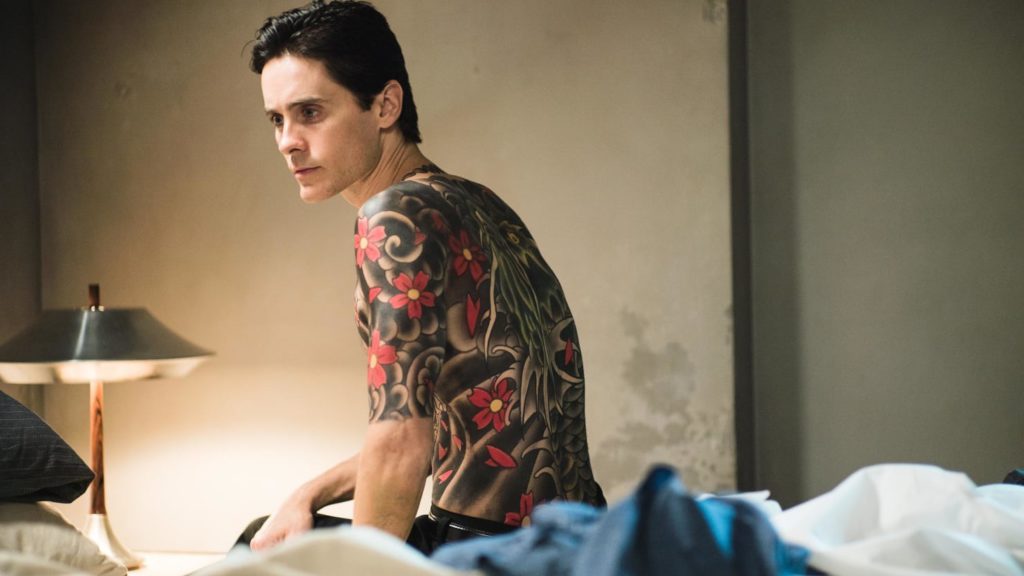
By Ahmed Sharma
AsAmNews Intern
Just when movie-viewers thought Hollywood White washing would be, or was at least in the process of becoming, completely eradicated we find yet again that Hollywood is still up to its naughty tricks with Netflix’s latest release: The Outsider. The film is set in Osaka, Japan after World War II, where an American inmate of a Japanese prison finds himself immersed in the Yakuza, the Japanese mafia. The film has been critically panned by many news outlet ranging from the AV Club to the Guardian.
After watching the film, I have found that the plot is just too slow, perplexing and at times, too hackneyed for viewers to follow. Viewers should do themselves a favor and respectively, do something or watch virtually anything else, other than this film. I will admit that the film gives the impression to be a good film, especially with its casting of Oscar winner and lead singer of 30 Seconds to Mars, Jared Leto as the protagonist. However, the casting of Leto, a Caucasian man in a film about Japanese Mafia, has garnered a lot of criticism from reviewers for understandable reasons. To the film’s credit, Leto does not portray an Asian character like Tilda Swinton in Doctor Strange or Emma Stone in Aloha, or like Mickey Rooney as a White actor in Yellow-Face although it does indeed seem to pay homage to this “White savior” stereotype that Asians are inclined to rely on the help of Americans, specifically, Caucasian Americans, as illustrated in The Last Samurai with Tom Cruise
Leto is perhaps best known for his work in Dallas Buyers Club, Requiem for a Dream and his small but vital role in American Psycho, however he found himself caught in the crossfires of abhorrent reviews of one of his most recent films, Suicide Squad and received mixed reactions to his portrayal of the Joker. History has repeated itself with Leto’s portrayal of Nick Lowell, an American imprisoned during post-World War Two Japan, whose “heroic” actions in saving a fellow inmate in a Japanese prison, who turns out to be a member of the Yakuza (Japanese Mafia) grant him an honorary membership.
Much to the chagrin of all the other Yakuza members, Nick finds himself rising up the ranks of the Yakuza fairly abruptly. The plot thickens when Leto’s character also begins an affair with a local Japanese woman and the sister of the fellow Yakuza member who recruited him in the first place. Indeed, viewers will find themselves pushing their eyebrows together in an effort to concentrate on where the plot is going.
To be completely honest, after a string of panned reviews, it would be understandable for one to want to avoid the film or at least watch it just to give the film a chance and see why critics hate it so much. I didn’t even give Bright, Netflix’s December release with Will Smith, a chance and Thrillist has called The Outsider worse than Bright. Even one article in The Conversation, which seems to find issue with the depiction of Japanese culture in the film, leads potential viewers to just avoid the film altogether. Though this is painful to read, and it is by no means a reason to cease being a fan of Jared Leto’s, it should give Netflix a reason to carefully consider what films to stand behind.
AsAmNews has Asian America in its heart. We’re an all-volunteer effort of dedicated staff and interns. Check out our Facebook page and our Twitter feed, Please consider interning, joining our staff or submitting a story for consideration.

